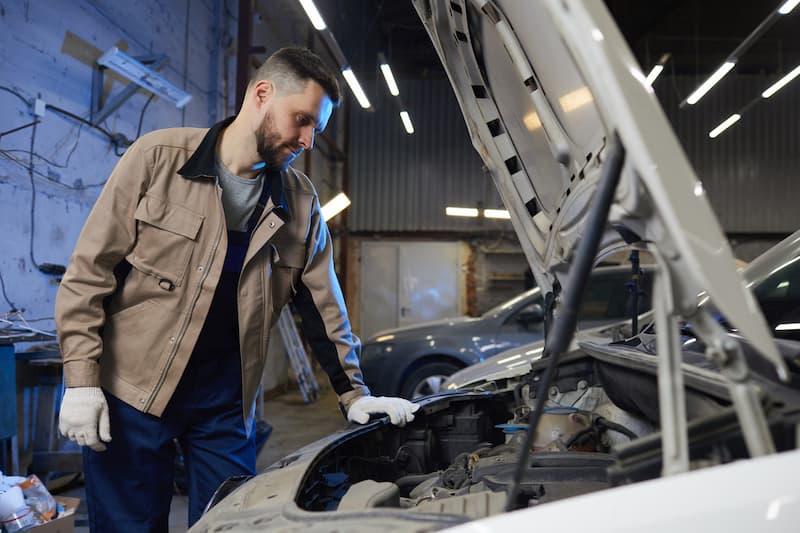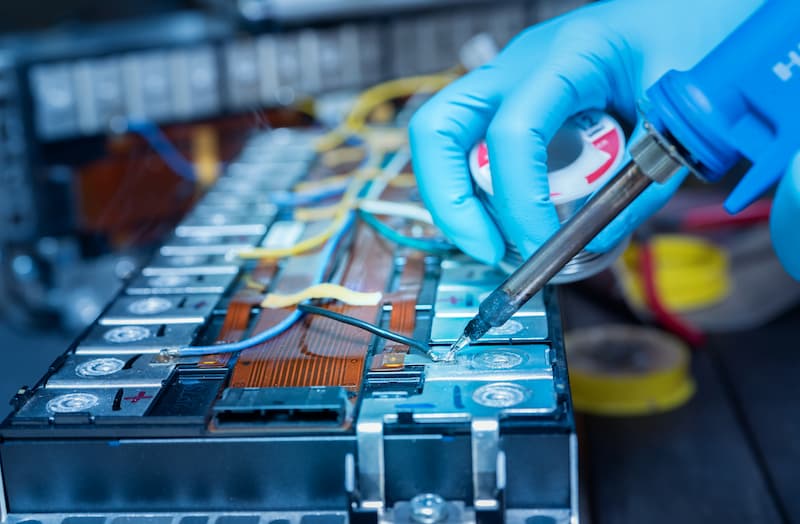Eight million cars are scrapped across the UK every year, with the average age of the car being 15 years. This means that recycling facilities like ours are essential to the metal industry. Most of the components of a car can be recycled and provide new materials within the automotive and manufacturing industry.
As a scrap metal recycling facility, we take pride in our end-of-life vehicle process, and in this guide, we will provide you with everything you need to know about the process. We aim to provide this information in the hope that you can make an informed decision on scrapping your car when the time comes.
The Environmental Impact of Vehicle Recycling
There are many reasons why recycling your vehicle is essential to the planet’s future. Vehicles contain many valuable materials that can be recycled, such as metal, rubber and plastic. By recycling these materials, you help reduce the waste which goes to landfills, or worse, is left to disintegrate, which can leak toxins and greenhouse gases into the atmosphere. Recycling these materials also helps minimise the energy required to create raw materials and will preserve natural resources for longer.
Every vehicle contains various chemicals, such as lead, mercury, and cadmium, which can harm the environment if not carefully and correctly disposed of. Recycling these materials with responsible vehicle recycling services can help to ensure that these materials are handled safely and do not contaminate the environment.
How Do You Know When it’s Time to Scrap Your Car?
Many decisions can lead to scrapping your car, but ultimately the conclusion will lie with the vehicle’s owner. It can be a challenging decision to make, and there is a lot to consider before having your car collected. But, generally speaking, most car owners will decide it’s time to scrap their vehicle when the repairs cost more than the car is worth to keep it road worthy.
A car needs to offer you safety, reliability and value for money, and if this doesn’t sound like your vehicle, you may save money by scrapping the vehicle and buying a newer and more reliable car. For instance, if a car is over 15 years old, has done over 150,000 miles, and requires work such as a new clutch, it may be time to consider selling it to a local scrap metal recycling facility. Although replacing the clutch may fix the initial issue, a car which has done that much milage will likely break down again with something else. The more a car costs you, the less economic value it will provide.
The Value of Scrap Metal in Cars
When your vehicle has come to the end of its life, it’s worth knowing how much you would get for it. The prices of scrap metal fluctuate regularly, so if you feel like you aren’t getting a good deal for your car, it may be worth holding off until the prices rise again. The value of your vehicle can also vary depending on the make and model, the car’s condition and its weight.
Older cars, such as Series II Landrover from the 1960s, contained much more metal than newer cars. These metals were often heavier, meaning they could be worth much more than lighter vehicles on the road today. Most vehicle scrap merchants will be able to work out the value of your car by using their online systems reasonably quickly.
How Is a Car Recycled?
There are many steps involved with recycling a car, and each needs to be done correctly and thoroughly to ensure the car is disposed of and recycled in a manner that positively affects the environment.
Collection. When you recycle your car, the first step is getting it to the recycling facility. Often cars ready for scrap may need collecting as they are not fit for road purposes. If this is the case, the recycling facility will arrange a time to collect the vehicle, the log book, and any keys you may have. Alternatively, if the car is legal to drive on the road, this is often more economical for the owner as there are no collection costs deducted from the sale of the car.
Inspection and evaluation. Even though you may have received a quote, either by phone or over email, for your car, it still must be inspected to ensure the price you are quoted is correct for the vehicle you are handing over. If the condition is severely worse than expected, this could affect the price.
Dismantling. Once the car has been inspected and the recycling facility legally owns it, it can be dismantled of all its parts. All the fluids, including oil, coolant, and fuel, are drained and disposed of properly. The battery and tires are removed, and any usable parts are salvaged.
Crushing. When only the car’s metal frame is left after dismantling, the vehicle is then crushed into a more compact form, making it easier to transport to the shredder, which will help with the next stage of the process.
Separation and sorting. To help separate the metals, the compact bail of a car is put through a shredding machine which allows it to become small shards of metal. This makes it easier for the metal to be separated and sorted with the help of an Eddy Current Separator. This machine allows metals to be collected for ferrous and non-ferrous metal recycling.
Melting and disposal. Once the metal has been sorted into piles of corresponding metals, it can be sent for melting, where the material will be remade into reusable metals. This recycled metal then goes back into manufacturing to help produce new goods and products, reducing the need for mining materials. Anything which cannot be recycled is disposed of safely and responsibly, which causes no further damage to the planet.
Which Parts of the Car Can Be Recycled?
A single car has about 30,000 parts on average. This ranges from the smallest bolt to the large outer panels which protect the inside. Most of this can be reused or melted down into new materials in the industry.
Headlights, seats, mirror wheels, undamaged car parts and even engine parts in good condition can be reused without melting down. Many of the remaining other components can be safe and viable to install into a different vehicle of the same make. This is why scrap yards are a reasonably popular place for motorists to find cheap replacements for their own vehicles, and breaking a car can often provide more value for the vehicle.
However, many car components may cause damage when removed or attempted to install in another vehicle but can still be recycled.
- The metal can be recycled and sent to a metal recycling facility.
- Engine oil from a vehicle can also be extracted and used again in a vehicle.
- Windows and windscreens can be removed and recycled into new products.
- Car batteries, also known as “wet cell batteries ”, can be recycled by dissecting the battery into its various parts, such as lead, silver, plastic and acid. The valuable parts can be extracted for reuse while the lead is melted down and the acid is neutralised.
- Car tyres have many uses and have even seen success in relaying roads and much more.
- Plastic can also be melted down to make new products.
New Technologies in the End Of Life Vehicle Process
As with any industry, the scrap car process always looks at how it recycles its product to become more efficient and sustainable. The increasing popularity of electric cars has meant the need for new recycling technologies to handle EVs’ unique materials and components. These technologies include recuperating lithium-ion batteries, which can be extracted from valuable metals such as cobalt, nickel, and lithium.
Many facilities are also looking to automate their processes a lot more, and this can help with the dismantling process, eliminating the time spent extracting the various components from a vehicle. This can streamline the vehicle recycling process significantly, allowing facilities to process even more cars to assist with the environmental impact. Another new technology is chemical recycling. This process includes breaking down elements such as plastics and other non-metallic materials into their chemical components, which can then be reused to make new products. This technology can reduce waste and conserve resources, another way the industry is becoming more sustainable.
Scrap your Vehicle with Morecambe Metals
We have been providing scrap metal recycling to the local area for many years and can take your car away to be recycled safely and sustainably. So, if you have a vehicle or several vehicles sitting in a car park or yard, disintegrating and rotting away, consider scrapping it with our competitively priced scrap my car services. For information or to get a quote for your car, enquire online, and our staff will contact you as soon as possible.




